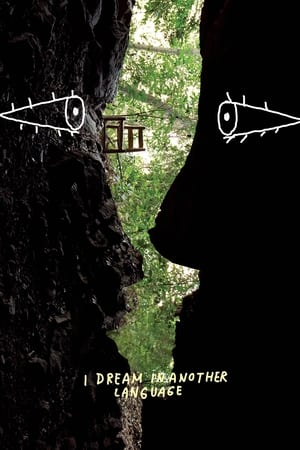Mexico has a rich cinematic history, with a variety of genres and styles represented in its films.
From classic dramas to action-packed thrillers, Mexican cinema has produced many memorable movies that have captivated audiences around the world. Here are some of the best Mexican movies.
Best Mexican Movies
These movies are just a few examples of the diverse and compelling films that have come out of Mexican cinema. Whether you’re a fan of drama, comedy, or action, Mexican cinema has something to offer for everyone.
1. Como Agua Para Chocolate (Like Water for Chocolate) (1992)
“Como Agua Para Chocolate” (Like Water for Chocolate) is a 1992 Mexican romantic drama film directed by Alfonso Arau, based on the novel of the same name by Laura Esquivel. The film tells the story of Tita, a young woman who falls in love with a man named Pedro, but is unable to marry him due to her family’s tradition that the youngest daughter cannot marry and must care for her mother until she dies.
The film follows Tita’s journey as she learns to express her emotions through cooking, using her culinary skills to explore the complexities of love, family, and tradition.
The film features a talented cast of actors, including Lumi Cavazos, Marco Leonardi, and Regina Torné, and has a lush and sensual visual style that captures the vibrant colors, flavors, and aromas of Mexican culture. “Como Agua Para Chocolate” was highly acclaimed by audiences and critics alike and won several awards, including the Ariel Award for Best Picture.
The film is a poignant and magical exploration of the power of food, love, and tradition, and offers a unique and engaging vision of Mexican cinema. It is a must-watch for anyone interested in romantic dramas, magical realism, and Latin American culture.
- English (Subtitle)
- Audience Rating: NC-17 (Adults Only)
2. Roma (2018)
“Roma” is a 2018 Mexican drama film written and directed by Alfonso Cuarón. The film follows the life of a maid named Cleo who works for a middle-class family in Mexico City during the early 1970s. The film explores themes of class, race, and family dynamics, and is partly based on Cuarón’s own childhood experiences.
One of the notable characteristics of “Roma” is its visual style, which is often described as poetic and immersive. The film features stunning black-and-white cinematography, which captures the beauty and complexity of Mexico City, as well as the intimate moments of Cleo’s life. The use of long, sweeping takes creates a sense of realism and authenticity, and immerses the viewer in the world of the film.
Another characteristic of “Roma” is its use of sound design. The film features a rich and layered soundscape, which includes everything from the bustling streets of Mexico City to the quiet moments of Cleo’s life. The use of sound creates a sense of immersion and realism, and helps to convey the emotions and experiences of the characters.
Finally, “Roma” is notable for its powerful and nuanced portrayal of its characters. The film features complex and multidimensional characters, who are portrayed with sensitivity and empathy. The performances of the cast, particularly lead actress Yalitza Aparicio, have been widely praised for their authenticity and emotional depth.
Overall, “Roma” is a powerful and visually stunning film that explores important themes and features rich and nuanced characters. It is a must-watch for fans of international cinema and those interested in exploring the complexities of Mexican society and culture.
- Yalitza Aparicio (Actor)
- English (Subtitle)
3. Macario (1960)
“Macario” is a 1960 Mexican drama film directed by Roberto Gavaldón. The film is based on a novel by B. Traven and tells the story of a poor indigenous man named Macario who dreams of eating a whole turkey by himself. When he is given a magical potion that can make him invisible, he uses it to achieve his dream, but his actions have unexpected consequences.
“Macario” is known for its hauntingly beautiful black and white cinematography and its deeply affecting portrayal of the struggle between greed and compassion. The film explores themes of poverty, inequality, and the human condition, and it features a powerful performance by Ignacio López Tarso as the titular character.
“Macario” was a critical and commercial success upon its release and it has since become a classic of Mexican cinema. The film was nominated for an Academy Award for Best Foreign Language Film and it has been praised for its masterful storytelling, its beautiful cinematography, and its universal themes, which continue to resonate with audiences today.
- Spanish & English Subtitles
- 90 MIN
- Fullscreen
- Ignacio Lopez Tarso (Actor)
- English (Subtitle)
4. I Dream in Another Language (2017)


I Dream in Another Language
2017 • 1h 41min • ★ 7.9/10 • Mexico
Directed by: Ernesto Contreras
Cast: Eligio Meléndez, José Manuel Poncelis, Juan Pablo de Santiago, Hoze Meléndez, Fernando Álvarez Rebeil
An indigenous language is in peril, as its last two speakers had a quarrel in the past and haven't spoken to each other in over 50 years. Martín, a young linguist, will undertake the challenge of bringing the old friends back together and convincing them to speak once again so he can obtain a recorded registration of the language and study it.
“I Dream in Another Language” (Sueño en otro idioma) is a 2017 Mexican drama film directed by Ernesto Contreras. The film tells the story of a young linguist named Martin, who travels to a remote village in Mexico to study the dying language of the Zikril people. He meets two elderly men, Evaristo and Isauro, who are the last two living speakers of the language, but who have not spoken to each other in over 50 years due to a long-standing feud.
The film explores themes such as language, culture, identity, and the passage of time. It features a talented cast of Mexican actors, including Fernando Álvarez Rebeil, Eligio Meléndez, and Manuel Poncelis, and received critical acclaim for its sensitive portrayal of complex cultural issues.
For more about Mexico cinema, you can check out our overview of the best films from Mexico and our country-by-country exploration of global cinema.
“I Dream in Another Language” was a commercial success in Mexico and won numerous awards at international film festivals, including the Audience Award at the Sundance Film Festival. The film is known for its beautiful cinematography, engaging performances, and powerful message about the importance of preserving indigenous cultures and languages.
- Fernando Álvarez Rebeil, Eligio Meléndez, Manuel Poncelis (Actors)
- Ernesto Contreras (Director) - Carlos Contreras (Writer) - Mónica Lozano (Producer)
- Audience Rating: NR (Not Rated)
5. Y Tu Mamá También (2001)
“Y Tu Mamá También” is a 2001 Mexican coming-of-age movie directed by Alfonso Cuarón. The film follows the story of two teenage boys, Julio (Gael García Bernal) and Tenoch (Diego Luna), who go on a road trip with an older woman, Luisa (Maribel Verdú), to a fictional beach called “Heaven’s Mouth”. The journey tests their friendship and opens up new possibilities for all of them.
The movie explores themes of sexuality, friendship, class, and politics, with a strong emphasis on Mexican culture and society. It features a distinctive narrative style that mixes documentary-like voiceovers with a fictional story, providing a commentary on Mexican life and politics during the late 1990s.
“Y Tu Mamá También” was widely acclaimed by critics and audiences alike, both in Mexico and internationally. It won numerous awards, including the Best Original Screenplay award at the Venice Film Festival and the Best Foreign Language Film award at the Independent Spirit Awards. The movie is widely regarded as a landmark in Mexican cinema, and it has been praised for its frank portrayal of sexuality, its social commentary, and its innovative storytelling techniques.
- Factory sealed DVD
- Daniel Giménez Cacho, Ana Lopez Mercado, Diego Luna (Actors)
- Alfonso Cuaron (Director)
- English (Subtitle)
- English (Publication Language)
6. Alamar (2009)


To the Sea
Filmed in the second-largest coral reef system on the planet!
2010 • 1h 13min • ★ 6.8/10 • Mexico
Directed by: Pedro González-Rubio
Cast: Natan Machado Palombini, Jorge Machado, Roberta Palombini, Nestor Marin
Before leaving for Rome with his mother, five year old Natan is taken by his father, Jorge, on an epic journey to the pristine Chinchorro reef off the coast of Mexico. As they fish, swim, and sail the turquoise waters of the open sea, Natan discovers the beauty of his Mayan heritage and learns to live in harmony with life above and below the surface, as the bond between father and son grows stronger before their inevitable farewell.
“Alamar” is a 2009 Mexican drama film directed by Pedro González-Rubio. The film tells the story of a young boy named Natan who spends a summer with his father, Jorge, in the remote coastal region of Banco Chinchorro in Mexico. Jorge is a fisherman who lives a simple life in a small house on stilts surrounded by the sea, and he uses his time with Natan to teach him about the beauty and wonder of nature, the importance of traditional fishing techniques, and the bond between father and son.
The film features a cast of non-professional actors, including Jorge Machado, Roberta Palombini, and Natan Machado Palombini (who plays himself), and has a documentary-like visual style that captures the stunning natural beauty of the coastal region and the daily routines and rituals of the characters.
“Alamar” was highly acclaimed by audiences and critics alike and won several awards, including the Grand Jury Prize at the Miami International Film Festival.
The film is a poetic and meditative exploration of the relationship between humans and nature, and offers a unique and intimate portrait of Mexican culture and way of life. It is a must-watch for anyone interested in minimalist cinema, ethnographic documentaries, and environmental studies.
7. Amores Perros (2000)
“Amores Perros” is a 2000 Mexican drama film directed by Alejandro González Iñárritu. The film is divided into three distinct storylines that are linked together by a car crash in Mexico City. The film explores themes of love, loss, and redemption, and is known for its gritty realism and powerful storytelling.
One of the notable characteristics of “Amores Perros” is its use of nonlinear storytelling. The film weaves together three different stories, each of which is told from a different character’s perspective. The nonlinear structure creates a sense of mystery and suspense, and allows the viewer to piece together the connections between the different characters and storylines.
Another characteristic of “Amores Perros” is its use of violence and brutality. The film features several scenes of graphic violence, including dogfighting and gun violence. However, these scenes are not gratuitous or sensationalistic, but rather are used to explore the dark and violent side of human nature.
Finally, “Amores Perros” is notable for its portrayal of Mexico City and its diverse population. The film depicts the city as a complex and vibrant place, filled with people from all walks of life. The use of real locations and non-professional actors creates a sense of authenticity and realism, and allows the viewer to experience the city in a visceral way.
Overall, “Amores Perros” is a powerful and thought-provoking film that explores important themes and features rich and complex characters. It is a must-watch for fans of international cinema and those interested in exploring the complexities of Mexican society and culture.
- Condition: New
- Format: DVD
- Anamorphic; Color; Dolby; DVD; Subtitled; Widescreen; NTSC
- Vanessa Bauche, Emilio Echevarria, Gael García Bernal (Actors)
- Alejandro Iñárritu (Director)
8. Heli (2013)
“Heli” is a 2013 Mexican drama film directed by Amat Escalante. The film follows the story of a young Mexican family caught in the crossfire of the country’s brutal drug wars. When Heli, a young man from a rural area, unwittingly gets involved in the drug trade, his family becomes the target of violent retaliation from the drug cartel.
The film is known for its unflinching portrayal of the violence and corruption that has plagued Mexico in recent years, and for its powerful performances by its cast. “Heli” explores themes of family, power, and corruption, and it offers a searing critique of the political and social systems that allow such violence to flourish.
Despite its challenging subject matter, “Heli” was a critical success upon its release, winning the Best Director award at the 2013 Cannes Film Festival. The film has been praised for its uncompromising realism, its stunning cinematography, and its deeply affecting performances, which bring to life the human toll of Mexico’s drug wars.
9. La Libertad del Diablo (Devil’s Freedom) (2017)


Devil’s Freedom
2017 • 1h 14min • ★ 7.3/10 • Mexico
Directed by: Everardo González
Mexico, 2016. In some of the world's most dangerous cities life is not worth much. Looking into the eyes of the protagonists of violence, victims as well as executioners, helps to understand how fear inserted itself in the subconscious of our society. Through a network of concrete stories, we are facing the most obscure traits of the human psyche, the frail balance between humanity and evil.
“La Libertad del Diablo” (Devil’s Freedom) is a 2017 Mexican documentary film directed by Everardo González. The film deals with the theme of violence in Mexico, particularly the issue of forced disappearances, which has been a major problem in the country for many years.
The film consists of interviews with victims, witnesses, and perpetrators of violence, as well as family members of the disappeared. It explores the psychological and emotional impact of violence on individuals and communities, and raises questions about the role of the state and society in addressing this issue.
The film is notable for its raw and powerful depiction of the effects of violence on people’s lives, as well as its innovative approach to documentary filmmaking. The director uses a unique visual style, using black screens to create a sense of darkness and emptiness, and allowing the voices of the interviewees to be the main focus.
“La Libertad del Diablo” received critical acclaim and won numerous awards at international film festivals, including the Best Documentary Award at the Morelia International Film Festival and the FIPRESCI Prize at the Thessaloniki Documentary Film Festival. The film is an important contribution to the ongoing dialogue about the impact of violence and the need for justice and accountability in Mexico.
10. Frida (2002)
“Frida” is a 2002 American biographical drama movie about the life and work of the Mexican painter Frida Kahlo. The film was directed by Julie Taymor and stars Salma Hayek in the title role, with Alfred Molina playing Diego Rivera, Kahlo’s husband and fellow painter.
The movie follows Kahlo’s life from her youth in Mexico City to her artistic and political awakening, her marriage to Rivera, and her struggles with physical and emotional pain. The film explores themes of love, identity, creativity, and politics, as well as the cultural and historical context of Mexico during the first half of the 20th century.
“Frida” was praised for its artistic and visual style, as well as the performances of its cast. Salma Hayek’s portrayal of Frida Kahlo was particularly acclaimed, earning her a nomination for the Best Actress Oscar. The movie also won two Academy Awards, for Best Makeup and Best Original Score.
Overall, “Frida” is a powerful and emotionally engaging biopic that pays tribute to one of Mexico’s most iconic and influential artists. It is a must-watch for anyone interested in the life and work of Frida Kahlo, as well as for fans of biographical dramas and Mexican cinema.
- Frida (2002) ( Frida ) ( Frida Kahlo )
- Frida (2002)
- Frida
- Frida Kahlo
- Salma Hayek, Alfred Molina, Antonio Banderas (Actors)
Best Mexico Road Trip Movie
“Y Tu Mamá También” is a 2001 Mexican road trip movie directed by Alfonso Cuarón. The film follows two teenage boys, Julio and Tenoch, who embark on a road trip with an older woman named Luisa, whom they meet at a family wedding. As they journey through the Mexican countryside, the three travelers confront issues of sexuality, mortality, and the complexities of adulthood.
The film is known for its raw and unflinching portrayal of youth culture in Mexico, as well as for its exploration of social and political issues such as class inequality, corruption, and the legacies of colonialism. “Y Tu Mamá También” features strong performances by its three leads, as well as a dynamic and immersive visual style.
The film received critical acclaim upon its release, both in Mexico and internationally. It won several awards at film festivals around the world, and is often cited as a landmark of Mexican cinema. “Y Tu Mamá También” is a powerful and engaging road trip movie that offers a nuanced and insightful portrayal of contemporary Mexico and its people.
Best Mexican Border Movies
“The Treasure of the Sierra Madre” (1948) – Directed by John Huston and starring Humphrey Bogart, this classic film tells the story of three Americans who travel to Mexico to prospect for gold in the Sierra Madre mountains. Along the way, they must navigate the dangers of the Mexican border and confront their own greed and moral failings.
“El Norte” (1983) – Directed by Gregory Nava, this film follows a young brother and sister from Guatemala as they journey through Mexico to the United States in search of a better life. The film explores the harsh realities of border crossing and the challenges faced by immigrants in America.
“Traffic” (2000) – Directed by Steven Soderbergh, this crime thriller tells the interconnected stories of a Mexican policeman, an American drug czar, and a wealthy drug dealer. The film explores the drug trade and its impact on both sides of the border.
“No Country for Old Men” (2007) – Directed by Joel and Ethan Coen, this neo-Western thriller is set on the Texas-Mexico border and follows the aftermath of a drug deal gone wrong. The film features an unforgettable performance by Javier Bardem as a sociopathic hitman.
“Sicario” (2015) – Directed by Denis Villeneuve, this crime thriller follows an idealistic FBI agent who is recruited by a government task force to help take down a Mexican drug cartel. The film explores the complexities of the drug trade and the moral ambiguity of the American war on drugs.
These films offer a diverse range of perspectives on the Mexican border and the challenges faced by those who live and work in the region. They are all powerful examples of the ways in which cinema can shed light on important social and political issues.
Best Mexican Documentaries
“Presumed Guilty” (2011) – This gripping documentary tells the story of a young man who is wrongfully accused of murder and follows his fight for justice within Mexico’s flawed legal system.
“Hasta los dientes” (2018) – This powerful documentary explores the 2014 case of 43 students who went missing in Guerrero, Mexico, and sheds light on the corrupt and violent practices of the country’s government and military.
“El General” (2009) – This documentary explores the legacy of Mexican president Porfirio Díaz and the impact his policies had on the country, as told through the eyes of his great-granddaughter.
“The Devil’s Freedom” (2017) – This documentary explores the effects of Mexico’s ongoing drug war through the stories of those who have been directly affected, including victims, their families, and former drug lords.
“Frontera Invisible” (2018) – This documentary explores the lives of indigenous communities in Mexico who are fighting to protect their land and natural resources from the encroachment of multinational corporations.
“Tita Turns 100” (2021) – This documentary celebrates the life and legacy of Tita, a beloved matriarch of a family in Oaxaca, Mexico, as she prepares to celebrate her 100th birthday.
These documentaries offer a glimpse into the social, political, and cultural issues facing Mexico today and are powerful examples of the transformative potential of documentary filmmaking.
3 Characteristics of Mexican Movies
Social commentary: Many Mexican movies deal with social issues and offer a critique of Mexican society and politics. These films often explore topics such as poverty, corruption, and social inequality, and offer a window into the challenges and struggles faced by ordinary Mexicans.
Magical realism: Mexican movies often incorporate elements of magical realism, a literary and artistic style that blurs the boundaries between reality and fantasy. This can include supernatural elements, dream-like sequences, and symbolism that add depth and richness to the storytelling.
Strong cultural identity: Mexican movies often reflect a strong sense of cultural identity and pride in Mexican history and traditions. This can be seen in the use of traditional music, dance, and costumes, as well as in the exploration of Mexican folklore, myths, and legends. Mexican movies often celebrate the diversity and richness of Mexican culture, and offer a unique perspective on the world.
3 Reasons To Watch Mexican Movies
Rich cultural heritage: Mexican movies offer a glimpse into the country’s rich cultural heritage, including its art, music, traditions, and history. Mexican cinema often explores themes of national identity, social and political issues, and Mexican culture, giving viewers a deeper understanding of the country’s unique identity and challenges.
Diverse storytelling: Mexican cinema offers a wide range of storytelling styles, from gritty dramas to lighthearted comedies. Mexican movies also often blend genres and incorporate elements of magical realism, surrealism, and other unconventional storytelling techniques. This diversity of storytelling allows for a rich and varied movie-going experience.
Acclaimed films and filmmakers: Mexican cinema has a long and storied history, and has produced many acclaimed films and filmmakers. Directors like Alfonso Cuarón, Guillermo del Toro, and Alejandro González Iñárritu have all achieved international success, and Mexican movies have won numerous awards at prestigious film festivals around the world, including the Cannes Film Festival and the Academy Awards. Watching Mexican movies can offer a window into the unique perspectives and visions of these talented filmmakers.
Best Mexican Movies – Wrap Up
In conclusion, Mexican cinema has a rich and varied history, with many outstanding films that have made significant contributions to world cinema. From the early days of the Golden Age of Mexican cinema to the present day, Mexican filmmakers have tackled a wide range of topics, including politics, social issues, human relationships, and the complexities of Mexican identity.
Some of the best Mexican movies that we have discussed include “Amores perros,” “Pan’s Labyrinth,” “Y Tu Mamá También,” “María Candelaria,” and “Roma.” These films represent different eras and genres of Mexican cinema, but they all share a commitment to exploring important themes and issues through powerful storytelling and innovative filmmaking.
Mexican cinema continues to evolve and thrive, with new voices and perspectives emerging all the time. Whether you are a fan of classic Mexican cinema or are looking to explore the latest works by up-and-coming filmmakers, there is always something exciting to discover in Mexican movies.

![Like Water For Chocolate [1992] [DVD]](https://m.media-amazon.com/images/I/41nUmQsQwML.jpg)
![Roma (2018) [Criterion Collection] UK Only [DVD] [2019]](https://m.media-amazon.com/images/I/31M-E9Z7uAL.jpg)


![I Dream in Another Language (English Subtitled) [Blu-ray]](https://m.media-amazon.com/images/I/517RWGGsoUL.jpg)




![Heli [DVD] [2013]](https://m.media-amazon.com/images/I/51eRERAII8L.jpg)
![Frida (2002) ( Frida ) ( Frida Kahlo ) [ NON-USA FORMAT, Blu-Ray, Reg.B Import - France ]](https://m.media-amazon.com/images/I/51NdmsTyn9S.jpg)

